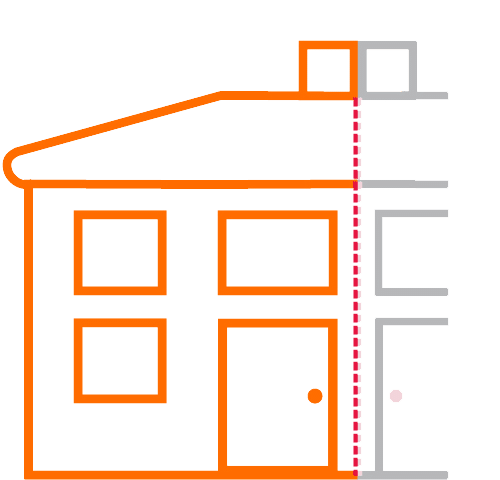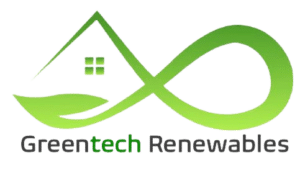Eco4 Scheme Installers: Certified Experts in Delivering Energy Solutions
Eco4 Scheme installers play a vital role in delivering energy-saving improvements to UK homes, particularly those qualifying under flexible eligibility criteria. Backed by Eco4 funding and energy grants, these professionals assess each property in line with PAS 2035 and PAS 2030 standards to ensure all upgrades meet the latest energy efficiency and safety requirements.
Installers implement tailored energy solutions—including wall insulation, boiler replacements, and heat pump systems—helping households cut costs and reduce environmental impact. Through the Flex route, additional households not traditionally eligible may still access support based on local authority discretion.
From the initial assessment to securing eco funding and managing installation, certified Eco4 installers ensure full compliance and optimal results. Discover how their expertise and access to advanced technologies turn government-backed funding into real, lasting home upgrades.
Understanding the Eco 4 Scheme
The Eco 4 Scheme, which aims to enhance energy efficiency in homes across the UK, is designed to provide financial support for various energy-saving measures. This initiative targets low-income households, helping them access improvements like insulation and heating upgrades, which can greatly reduce energy bills. By collaborating with certified installers, the scheme guarantees that qualified professionals carry out the work, adhering to industry standards. Participants can benefit from fully funded upgrades or grants, making energy-efficient solutions more accessible. Understanding the eligibility criteria is vital, as not every household qualifies. The scheme not only contributes to reducing carbon footprints but also aims to alleviate fuel poverty, creating a more sustainable living environment for those in need. Homeowners seeking qualified contractors should look for TrustMark-accredited installers to ensure the highest quality of workmanship and service delivery.
The Importance of Energy Efficiency
Energy efficiency isn’t just a buzzword; it directly impacts your wallet, the environment, and the value of your home. By reducing energy consumption, you can save on utility bills while also lowering your carbon footprint, contributing to a healthier planet. Additionally, energy-efficient upgrades often enhance your property’s market appeal, making it a smart investment for the future.
Cost Savings Benefits
While many homeowners may overlook the financial implications of energy efficiency, understanding the cost savings benefits can lead to considerable long-term advantages. By investing in energy-efficient upgrades, you can greatly reduce your utility bills, as these improvements often lead to lower energy consumption. For instance, replacing outdated appliances with Energy Star-rated models can result in savings of 10 to 50 percent on energy costs. Additionally, energy-efficient homes often have higher resale values, making them more attractive to potential buyers. Over time, the initial investment in energy-efficient technologies pays off, as you’ll notice a consistent decrease in monthly expenses. Ultimately, these savings contribute to a more sustainable financial future, allowing you to allocate funds toward other priorities.
Environmental Impact Reduction
As you consider the broader implications of energy efficiency, it is crucial to recognize its role in reducing environmental impacts. By improving energy efficiency in your home, you directly decrease greenhouse gas emissions. This reduction occurs because efficient appliances and systems consume less energy, which often comes from fossil fuels. Additionally, you help conserve natural resources, as less energy production means less depletion of these vital reserves. Implementing energy-efficient solutions not only benefits the environment but also promotes sustainable living practices. Moreover, energy-efficient homes contribute to lower air pollution levels, enhancing overall public health. By prioritizing energy efficiency, you actively participate in combating climate change and fostering a healthier planet for future generations.
Increased Home Value
Improving energy efficiency in your home not only benefits the environment but also greatly enhances your property’s market value. Buyers are increasingly seeking energy-efficient homes, recognizing the long-term savings on utility bills and reduced maintenance costs. Features like upgraded insulation, energy-efficient windows, and modern heating systems create a more appealing home, making it stand out in a competitive market. Additionally, many regions offer incentives, such as tax credits or rebates, further increasing the attractiveness of energy-efficient properties. As energy costs rise, homes with sustainable features often command higher prices and sell faster. Investing in energy efficiency isn’t just about saving money; it’s a strategic move to boost your home’s value and appeal to environmentally conscious buyers.
Role of Eco 4 Scheme Installers
As an Eco 4 scheme installer, you play an essential role in the energy efficiency landscape by overseeing the installation process of various energy-saving measures. Your expertise not only guarantees that these installations meet regulatory standards but also helps homeowners reap the benefits of reduced energy costs and improved comfort. Understanding the specifics of the installation process and the advantages of the Eco 4 scheme can greatly enhance the impact of your work.
Installation Process Overview
The installation process for Eco 4 Scheme projects involves a series of critical steps that Eco 4 Scheme installers must follow to guarantee compliance and efficiency. Initially, installers assess the property to determine the most suitable energy-saving measures, considering the specific needs of the household. Next, they prepare the site, ensuring all necessary tools and materials are on hand. During installation, installers must adhere to safety regulations and manufacturer guidelines, ensuring that all systems function effectively. After installation, they conduct thorough checks to verify that everything operates correctly. Finally, installers provide homeowners with essential documentation, detailing the work completed and any ongoing maintenance requirements. By following these steps, installers contribute to the overall success of the Eco 4 Scheme.
Benefits of Eco 4
While many homeowners may be aware of the Eco 4 Scheme’s goals, understanding the specific benefits brought by Eco 4 Scheme installers is essential for maximizing energy efficiency and cost savings. These professionals not only guarantee proper installation but also enhance the system’s performance, leading to significant energy savings. With their expertise, they help you access various grants and funding opportunities, making the shift to greener energy sources financially viable.
| Benefit | Description | Impact |
|---|---|---|
| Energy Efficiency | Optimizes heating and insulation systems | Reduces energy bills |
| Expert Guidance | Provides tailored advice on energy solutions | Increases system longevity |
| Funding Access | Assists in steering available grants | Lowers upfront costs |
Types of Eco-Friendly Technologies
When considering eco-friendly technologies, you’ll find a diverse array of options designed to enhance energy efficiency and reduce environmental impact. Solar panels, for instance, convert sunlight into electricity, providing a renewable energy source that can remarkably lower utility bills. Wind turbines harness wind energy, offering another sustainable solution, especially in areas with consistent wind patterns. Additionally, energy-efficient appliances, such as LED lighting and ENERGY STAR-rated products, use less power while delivering the same performance as traditional models. Heat pumps, which transfer heat rather than generating it, can efficiently heat or cool your home. Finally, rainwater harvesting systems collect and store rainwater for non-potable uses, reducing the demand on municipal water supply and promoting sustainable water management practices.
Benefits of Upgrading Insulation
Upgrading your insulation can greatly improve your home’s energy efficiency, which means you’ll use less energy to maintain comfortable temperatures. This not only reduces your carbon footprint but also leads to potential cost savings on your energy bills over time. By investing in better insulation, you’re making a smart decision that benefits both your wallet and the environment.
Energy Efficiency Improvements
Improving your home’s insulation greatly enhances energy efficiency, which can lead to substantial cost savings on heating and cooling bills. By upgrading insulation, you effectively reduce heat transfer, keeping your home warmer in winter and cooler in summer. This consistent temperature helps your heating and cooling systems operate more efficiently, reducing wear and tear and extending their lifespan. Enhanced insulation also minimizes drafts, improving overall comfort in your living spaces. Furthermore, better insulation can contribute to a healthier indoor environment, as it helps control moisture levels and prevent mold growth. Ultimately, investing in insulation upgrades not only bolsters energy efficiency but also elevates your home’s value and appeal, making it a wise choice for any homeowner.
Cost Savings Potential
Investing in insulation upgrades presents significant cost savings potential for homeowners. By enhancing your home’s insulation, you can reduce energy bills substantially. Well-insulated homes maintain temperature more effectively, which means your heating and cooling systems work less, leading to lower energy consumption. Studies show that homeowners can save up to 20% on heating costs and even more on cooling during the summer months. Additionally, many local and national programs offer incentives for upgrading insulation, decreasing initial costs. Over time, these savings can offset your investment, making high-quality insulation a financially sound choice. Ultimately, upgrading insulation not only improves comfort but also enhances your home’s value, creating long-term financial benefits that are hard to ignore.
Air Source Heat Pump
As the demand for sustainable heating solutions grows, heat pumps have emerged as a viable alternative to traditional heating systems. These systems efficiently transfer heat from the air, ground, or water into your home, providing warmth without relying heavily on fossil fuels. By using electricity to move heat rather than generate it, heat pumps can considerably reduce energy consumption and lower carbon emissions. Additionally, they can operate effectively in various climates, making them suitable for many households. With advancements in technology, modern heat pumps are increasingly efficient, often achieving higher energy ratings. By choosing heat pumps, you’re not only investing in a sustainable heating solution but also contributing to a greener future and potentially saving on energy costs over time.
Harnessing Solar Energy for Homes
Harnessing solar energy for homes presents a powerful opportunity to reduce reliance on conventional energy sources and lower utility bills. By installing solar panels, you can generate clean, renewable energy while contributing to environmental sustainability. Here are four key benefits of solar energy for your home:
- Lower Energy Costs: Reduce or eliminate your monthly electricity bills by generating your own power.
- Increased Home Value: Homes with solar installations often sell for more than those without.
- Energy Independence: Minimize vulnerability to rising energy prices and utility outages.
- Low Maintenance: Solar systems require minimal upkeep, with most components lasting over 25 years.
Government Incentives and Funding Options
While many homeowners recognize the benefits of solar energy, they might not be fully aware of the various government incentives and funding options available to support their installations. These programs can greatly reduce the financial burden associated with solar panel systems. For instance, tax credits allow you to deduct a portion of your installation costs from your federal taxes, effectively lowering your overall expenditure. Additionally, some states offer rebates or grants that can further decrease upfront costs. Financing options, such as low-interest loans, can also help you manage payments over time. Understanding these incentives is essential, as they not only make solar energy more accessible but also enhance the overall return on your investment in renewable energy.
Choosing the Right Installer
How do you guarantee that your solar installation meets both your expectations and local regulations? Choosing the right installer is vital. Here are four essential steps to guide your selection:
- Check Credentials: Verify the installer has the necessary certifications and licenses to operate in your area.
- Research Experience: Look for installers with a proven track record—experience often correlates with quality.
- Read Reviews: Customer feedback can provide insights into the installer’s reliability and service quality.
- Request Quotes: Obtain detailed estimates from multiple installers, making sure you compare not just prices but also the services included.
Office of Gas and Electricity Markets (Ofgem)
The Office of Gas and Electricity Markets (Ofgem) is Great Britain’s independent regulator of gas and electricity markets. It oversees energy suppliers and infrastructure operators to protect consumer interests and foster competition, while also guiding the transition to a greener energy system. Ofgem administers ECO4, setting eligibility rules and enforcing compliance among suppliers and installers.
Supply Chain
A robust supply chain underpins ECO4’s success, involving manufacturers, distributors, and installers all certified under TrustMark or similar standards. Ofgem provides guidance to ensure quality and due diligence across the chain. This framework ensures that energy-saving products like insulation, boilers, and heat pumps arrive on-site efficiently and meet regulatory requirements .
Power Control
“Power control” refers to monitoring and managing electricity flow, voltage, and stability in homes and grids. As more low carbon technologies such as solar PV and battery storage are deployed under ECO4, power control systems—smart meters, dynamic load management—become vital. These ensure that new installations integrate safely and optimally with the grid.
Low‑carbon Economy
ECO4 contributes directly to the UK’s low‑carbon economy by reducing carbon emissions from heating and energy use in homes. Upgrading inefficient properties helps reduce greenhouse gases, cut fuel bills, and supports national net‑zero targets. The UK government’s push toward low‑carbon infrastructure both stimulates investment and creates green jobs through retrofit activity ofgem.gov.uk+1ofgem.gov.uk+1.
Politics of Climate Change
ECO4 sits within a broader political landscape where climate policy shapes energy efficiency frameworks. Programs like the Climate Change Act (2008) and Net‑Zero Strategy (2021) set legal targets driving schemes such as ECO4. Political debates—over funding, eligibility, and regulation—determine the scheme’s direction and public support .
Alternative Energy Economics
The economics of renewables and efficiency investments under ECO4 hinge on balancing costs against fuel savings and carbon reduction. Measures are often supported through funding uplifts or grants, making installations financially viable. Critics and proponents examine whether financial incentives, like Contracts for Difference, deliver optimal return on public investment.
Power (Physics)
In physical terms, ECO4 measures—such as insulation and efficient heating—reduce overall power (watts) demand by lowering heat loss. This reduces energy required to heat homes, diminishes peak load on electrical networks, and supports smoother, lower‑carbon power provision at structural levels.
Energy Technology
ECO4 incorporates a wide range of energy technologies: high-performance insulation, condensing boilers, heat pumps, smart thermostats, and solar PV. Each helps enhance performance while reducing emissions. Technology selection depends on property type, energy needs, and budget, leveraging best practices in retrofit and engineering.
Energy Sources
ECO4 focuses on shifting energy supply from fossil fuels to renewable and low-carbon sources. This includes integration of solar, bioenergy, and electric heat pumps into homes, reducing dependence on natural gas. Measures also support the wider deployment of clean energy, aligned with national grid decarbonisation goals .
Energy Conversion
Central to many ECO4 installations is energy conversion—turning electricity into heat (via heat pumps) or storing solar-generated electricity for later use. Efficient conversion (minimum energy lost) significantly boosts savings and lowers emissions.
Electric Power
Electric power systems are essential for ECO4 upgrades, as many measures increase electricity demand (heat pumps, EV chargers) or supply (solar PV). Projects must consider grid connection, capacity, and smart dispatch to ensure safety and efficiency at the home and neighbourhood level.
Water Heating
ECO4 supports low-carbon water heating solutions, like solar thermal systems and efficient electric boilers or heat-pump water heaters. Upgrading water heating enhances comfort, cuts energy usage, and avoids fuel poverty in vulnerable households.
Microgeneration Certification Scheme (MCS)
The Microgeneration Certification Scheme (MCS) is a nationally recognised quality assurance standard for small-scale renewable energy technologies in the UK. For ECO4-funded installations—such as solar PV panels or air source heat pumps—MCS certification is essential. It ensures that both products and installers meet rigorous technical and performance standards. Working with MCS-accredited contractors gives homeowners peace of mind that their systems are efficient, reliable, and eligible for government-backed schemes like ECO4.
Future Trends in Eco-Friendly Installations
As the demand for sustainable energy solutions continues to rise, the landscape of eco-friendly installations is evolving rapidly. You’ll notice a significant shift towards smart technologies that optimize energy consumption, like smart meters and home automation systems. Additionally, renewable energy sources such as solar and wind are becoming increasingly integrated into residential and commercial buildings. The emphasis on energy efficiency is driving innovation in insulation materials and energy-saving appliances. Moreover, you might see a growing trend in circular economy practices, where materials are reused or recycled during installations. Finally, government incentives and regulations are likely to encourage the adoption of eco-friendly technologies, making them more accessible. Staying informed about these trends can enhance your ability to make sustainable choices in installations.
Frequently Asked Questions
How Do I Find Certified Eco 4 Scheme Installers in My Area?
To find certified installers in your area, start by searching online directories or local listings. You can also ask friends for recommendations or check reviews to guarantee you’re getting reliable and qualified professionals.
What Qualifications Should I Look for in an Eco 4 Installer?
What qualifications should you consider when hiring an installer? Look for certifications in energy efficiency, relevant experience, and customer reviews. These factors guarantee you get a skilled professional who can meet your specific needs effectively.
Are Eco 4 Scheme Installations Covered by Warranties?
Yes, many installations come with warranties that cover defects or issues. You should always check the specifics with your installer, as coverage can vary based on materials used and the company’s policies.
How Long Do Eco 4 Installations Typically Take?
Typically, installations take anywhere from a few hours to a couple of days, depending on the complexity of the project. You should always check with your installer for a more accurate estimate based on your specific needs.
Can I Combine Eco 4 Upgrades With Other Home Renovations?
Yes, you can combine upgrades with other home renovations. Coordinating projects can save time and resources, but guarantee you plan carefully to avoid conflicts and maximize efficiency during the installation process.
FTCH
First Time Central Heating Grants cover the cost of supplying and installing a central heating boiler together with radiators, the necessary pipework and heating control systems.
Storage Heaters
We provide traditional A-graded energy-efficient boilers and also top-of-the-range heating systems that will cut your energy costs in half.
Solar Panels
Local authorities have funding available to help low-income households improve the energy efficiency of their homes.
Loft Insulation
Loft insulation is generally considered the most efficient measure as it’s generally the quickest and cheapest to install.
Cavity Wall Insulation
The most effective way of retaining heat and warmth within your home is by thoroughly insulating your home wherever needed.
IWI
Having your internal walls insulated by the team at Ecowise is highly recommended, especially considering the recent drastic hike in energy prices.









